With so many different types of batteries and devices on the market today, choosing the right battery for your specific needs can seem like a difficult task. However, although it might seem challenging, it’s surely not insurmountable, especially with the help of this official Battery Depot guide! Keep reading.
And, if you have any questions, don’t hesitate to contact us. We’d be happy to answer them.
The Ultimate Types of Batteries List
 Here’s a look at the various types of batteries that we have in stock. Our inventory is both large and diverse, so we hope that you refer to this list for a bit of help determining which is best for your needs.
Here’s a look at the various types of batteries that we have in stock. Our inventory is both large and diverse, so we hope that you refer to this list for a bit of help determining which is best for your needs.
Cordless Phone Batteries
Cordless phone batteries are invaluable in your home, office, or apartment. There’s an array of cordless phone batteries for your AT&T®, General Electric, Panasonic, and Radio Shack phones in our inventory.
Watch Batteries
Watch batteries (also known as button cell batteries) are disposable batteries that can be used for multiple different watches. We carry watch battery replacements for Bulova, Citizen, Seiko, Swatch, and other watches, too.
Alkaline Batteries
An alkaline battery is a dry cell battery with an alkaline electrolyte of potassium hydroxide that’s commonly used to power a variety of devices, including alarm clocks, flashlights, smoke detectors, digital cameras, children’s toys, remote controls, radios, etc.
Lithium Batteries
Lithium batteries have lithium as an anode and are rechargeable batteries. You can also use lithium batteries to power a variety of devices, such as PDAs, pacemakers, watches, smartphones, thermometers, remote car locks, laser pointers, and more.
Power Tool Batteries
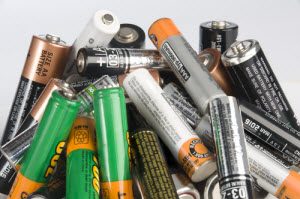
You’ll find power tool batteries for equipment from Black & Decker, Skil, Ryobi, Panasonic, Metabo, Milwaukee, Makita, Hitachi, DeWalt, Bosch, Craftsman, and so on.
Cell Phone Batteries
Don’t replace your cell phone when you can replace your cell phone battery. Cell phone batteries range in composition from lead acid to lithium ion. It’s easy to find a replacement for your iPhone, BlackBerry, HTC, Motorola, Nokia, Samsung, or T-Mobile cell phone online!
Two-Way Radio Batteries
Regardless of whether you utilize two-way radios from Icom, Yaesu, Kenwood, Motorola, Radio Shack, Uniden, or any other communications company, we’ve got it.
Camera Batteries
It doesn’t matter if you’re a traveler, a hobbyist, a student, or a professional. We have the camera batteries you need for the prices you want. It’s really quite easy.
Rechargeable Batteries
Rechargeable batteries are affordable and provide convenience when you need to power up. Rechargeable batteries are available for 9 Volt, AA, AAA, C, D, SC, and many others. They’re also available in many common chemical compositions, including lithium, lithium ion, nickel cadmium, and more.Why throw your spent batteries away when you could just recharge ‘em instead? We recommend choosing a rechargeable battery if you go through a lot of batteries.
Other Types of Batteries
We also carry batteries that are compatible with laptops, household appliances, phones, e-cigarettes, industrial systems, and several other different technologies.
Picking the Right Battery in a Few Simple Steps
Step 1: Determine the exact specifications that your device requires. Look for info like voltage, capacity, number of cells, shape/size, and anything else that’s pertinent. This is the primary step.
Step 2: Read about the various options that are available. We’d recommend checking out the categorical pages on our site. For example, if you’re looking for a lead acid battery, we’ve got ‘em.
Step 3: If you need more precise directions, you can speak with a professional. We can help!
Contact Us Today at BatteryDepot.com with Any Questions
Although we tried to be as exhaustive as possible, we fully understand that we couldn’t cover everything there is to know about choosing the right battery for your needs in a single article. If you still have questions, simply reach out to our Battery Depot team right now. We look forward to hearing from you!

 Cost-Effectiveness
Cost-Effectiveness

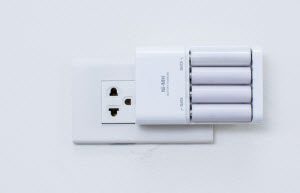 There are also drawbacks to both options in the rechargeable battery vs disposable battery comparison. Yes, there are drawbacks to rechargeable batteries (also called secondary batteries), believe it or not. The main one we’d like to emphasize here is the issue of the charger. Without the correct charger, a rechargeable battery is absolutely worthless! You won’t encounter this issue with disposable batteries.
There are also drawbacks to both options in the rechargeable battery vs disposable battery comparison. Yes, there are drawbacks to rechargeable batteries (also called secondary batteries), believe it or not. The main one we’d like to emphasize here is the issue of the charger. Without the correct charger, a rechargeable battery is absolutely worthless! You won’t encounter this issue with disposable batteries. The first thing you need to realize about how long laptop batteries last is that the lifespan of a laptop’s battery depends on a wide variety of factors: the chemical composition of the battery, the age of the battery, its capacity (mAh), what types of programs you’re running on the laptop, and much more. It can range from one to six hours.
The first thing you need to realize about how long laptop batteries last is that the lifespan of a laptop’s battery depends on a wide variety of factors: the chemical composition of the battery, the age of the battery, its capacity (mAh), what types of programs you’re running on the laptop, and much more. It can range from one to six hours.
 Here at BatteryDepot.com, we carry tons of different types of laptop battery replacements. In fact, we have over 600 different products in
Here at BatteryDepot.com, we carry tons of different types of laptop battery replacements. In fact, we have over 600 different products in 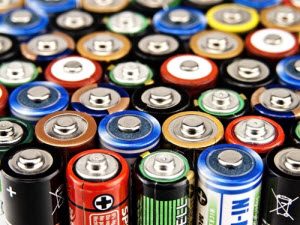 standard-size single-cell cylindrical dry battery is commonly found in a wide variety of portable electronic devices, from simple flashlights and children’s toys to complex digital cameras and PDAs.
standard-size single-cell cylindrical dry battery is commonly found in a wide variety of portable electronic devices, from simple flashlights and children’s toys to complex digital cameras and PDAs.
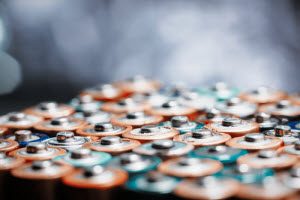 Next, let’s take a closer look at the Panasonic rechargeable NiMH AA battery, which is one of the best products in our whole inventory: Item # SS-0965. Here you go…
Next, let’s take a closer look at the Panasonic rechargeable NiMH AA battery, which is one of the best products in our whole inventory: Item # SS-0965. Here you go… We’ve all been there before, and we know what it’s like to ponder “Is my lawn mower battery dead?”. Perhaps winter is coming to a close, and it’s time to mow your lawn again; perhaps you’ve been busy, and you just haven’t had time to take the thing out of the garage and get ‘er done; or, perhaps you’re borrowing your neighbor’s decades-old mower.
We’ve all been there before, and we know what it’s like to ponder “Is my lawn mower battery dead?”. Perhaps winter is coming to a close, and it’s time to mow your lawn again; perhaps you’ve been busy, and you just haven’t had time to take the thing out of the garage and get ‘er done; or, perhaps you’re borrowing your neighbor’s decades-old mower.


 Sodium ions: Another benefit of the glass electrolyte breakthrough is that it’s allowed scientists to use sodium ions instead of lithium ions. What’s the big deal about sodium ions? Well, sodium is a lot cheaper than lithium. Since the outrageously high prices of electric vehicle batteries is a big factor that’s preventing many drivers from making the transition…well, you get the picture.
Sodium ions: Another benefit of the glass electrolyte breakthrough is that it’s allowed scientists to use sodium ions instead of lithium ions. What’s the big deal about sodium ions? Well, sodium is a lot cheaper than lithium. Since the outrageously high prices of electric vehicle batteries is a big factor that’s preventing many drivers from making the transition…well, you get the picture.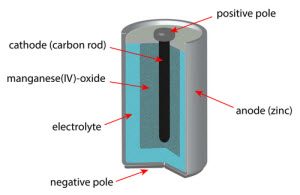 The most important step of any technical explanation of how do batteries work is actually establishing what the terms in question mean. Otherwise, when we say electrolyte, you might think that we’re talking about a red Gatorade; and when we say cathode, you might think that we’re talking about next year’s hottest baby name.
The most important step of any technical explanation of how do batteries work is actually establishing what the terms in question mean. Otherwise, when we say electrolyte, you might think that we’re talking about a red Gatorade; and when we say cathode, you might think that we’re talking about next year’s hottest baby name.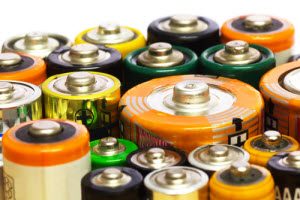 And now for the moment we’ve all been waiting for: How do batteries work.
And now for the moment we’ve all been waiting for: How do batteries work.